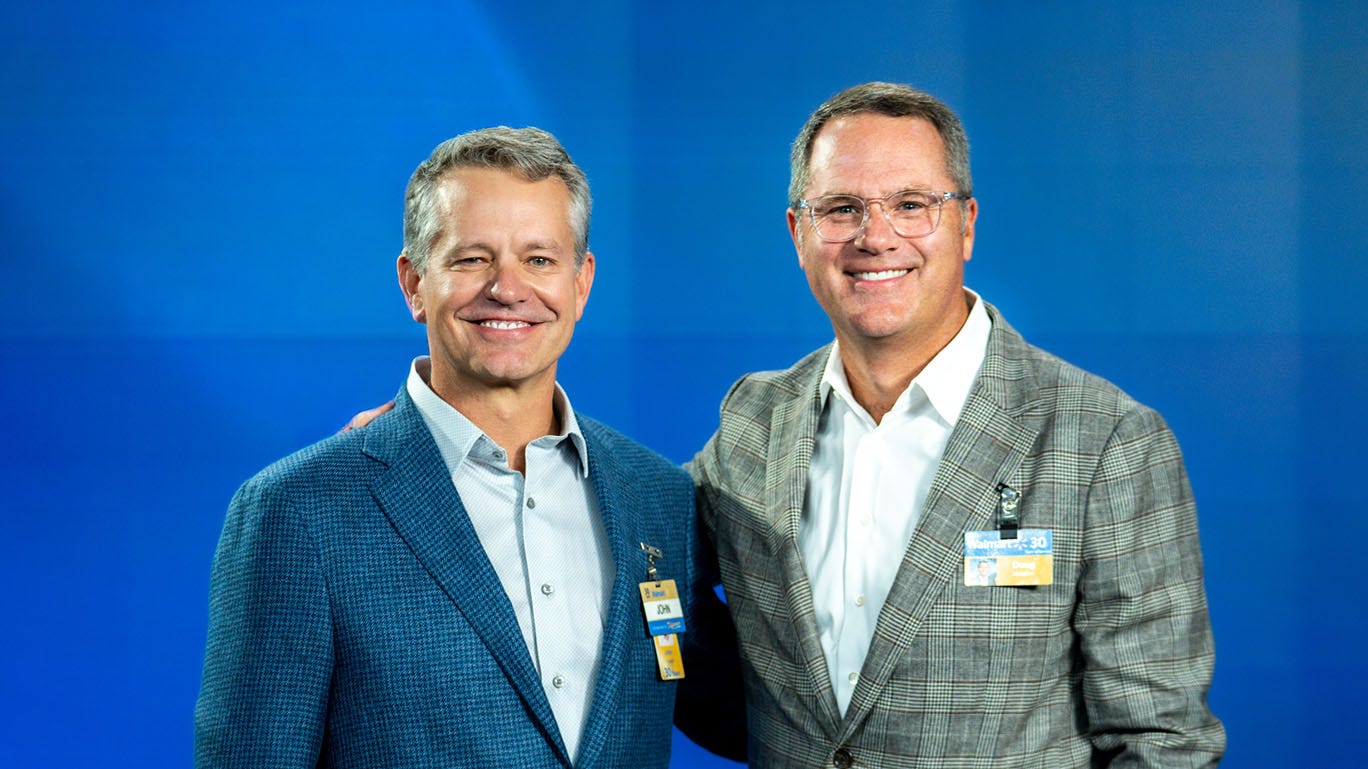Walmart Names John Furner as Next CEO, Succeeding Doug McMillon
Walmart announced a major leadership transition as its Board of Directors elected John Furner, currently CEO of Walmart U.S., to succeed Doug McMillon as President and CEO of Walmart Inc., effective February 1, 2026. Furner, a 30-year company veteran who began as an hourly associate, was also appointed to the Board immediately. McMillon, who has led Walmart through more than a decade of digital transformation and supply chain modernization, will retire on January 31, 2026, but remain on the Board until the next shareholders’ meeting and continue advising Furner through January 2027 to ensure a smooth handoff. Leadership highlighted Furner’s deep operational expertise, digital acumen, and people-first approach, calling him the right leader to guide Walmart into its next AI-driven era. Furner emphasized continuity, culture, and innovation in his remarks, signaling a strategic focus on accelerating AI, elevating store operations, and strengthening community impact.
Why It Matters:
This marks Walmart’s most important leadership shift in a decade and sets the tone for how the world’s largest retailer plans to compete in an AI-powered retail environment. Furner’s selection signals stability, operational depth, and a continued push toward digital and automation-driven growth.
Doug McMillon’s retirement marks the end of a transformative era for Walmart. Over his decade-plus tenure as CEO, McMillon reshaped the retailer from a brick-and-mortar giant into a more agile, digitally capable ecosystem. He led Walmart through sweeping investments in eCommerce, last-mile delivery, marketplace expansion, and end-to-end supply chain modernization—moves that positioned the company as a credible competitor to Amazon and a leader in omnichannel retail. McMillon also prioritized associate investment, raising wages, expanding training, and modernizing workplace tools, which improved retention and strengthened Walmart’s operational core. The company’s robust financial performance through the pandemic and beyond—characterized by consistent comp growth, market share gains in grocery, and rapid adoption of services like Walmart+—reflects the long-term impact of his strategy. McMillon leaves a stronger, more innovative Walmart than the one he inherited, with durable capabilities in automation, data, and AI-driven decision making.
John Furner is widely viewed as a natural successor because his leadership style, operational grounding, and digital mindset closely align with the next phase of Walmart’s evolution. Having risen from an hourly store associate to leading the company’s largest operating segment, he brings an unusually deep understanding of frontline retail—experience that resonates with Walmart’s culture and its 1.6 million U.S. associates. Furner’s track record at Walmart U.S. is marked by improved associate engagement, tighter in-store execution, accelerated automation, and strengthened merchandising discipline. His leadership at Sam’s Club demonstrated his ability to modernize formats, introduce digital-first tools, and tighten value perception. Furner also has global experience, giving him a comprehensive view of Walmart’s diverse operating models.
Crucially, Walmart’s Board emphasized his “curiosity and digital acumen,” which are becoming essential as Walmart enters an AI-driven era. Furner has led initiatives that blend technology with operational excellence—from automation in distribution centers to improved inventory accuracy to digitally enhanced store processes. His reputation as a collaborative, people-focused leader makes him well suited to drive transformation without losing the cultural stability that has anchored Walmart’s success. In short, Furner combines frontline credibility, modern retail expertise, and a future-focused mindset, positioning him as the right leader to carry forward McMillon’s legacy while pushing Walmart deeper into AI-powered retail innovation.



